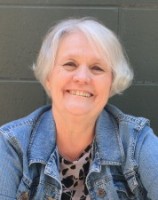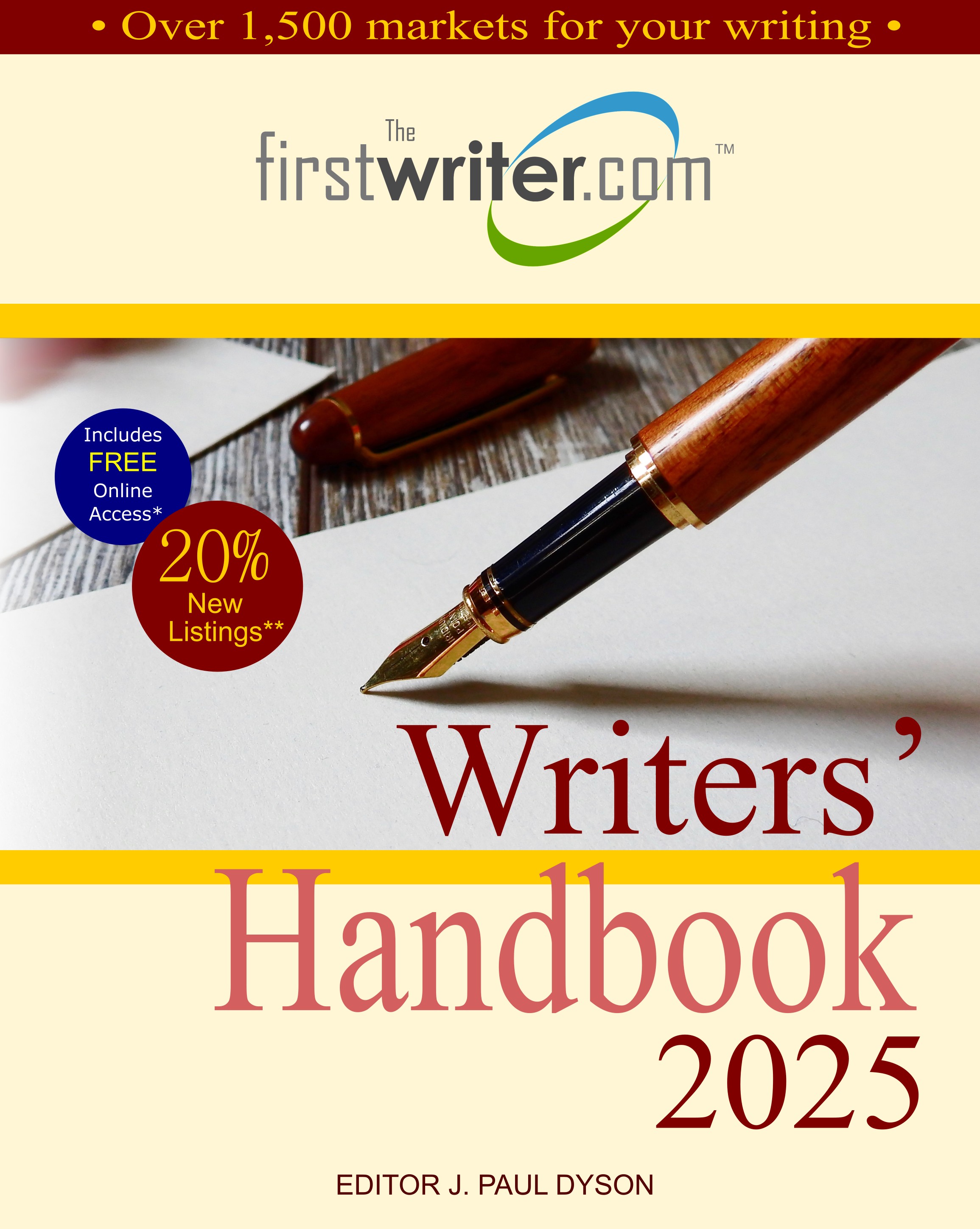
Writers' Newsletter
Issue #206
May 2020
|
So, you want a critique?

By G. Miki Hayden
Instructor at Writer's Digest University online and private writing coach
firstwriter.com – Saturday May 2, 2020
You asked for it. You may even have paid for it. But you still cringe when you open the emailed result of the critique and begin to read. You wanted to hear that your novel is great and you’re an astonishing writer, yet that’s not what the words on the screen are saying to you... But here are some ideas to let percolate in your mind when you’ve received what you wanted—some honest criticism.
Of course we all have blind spots where self-awareness is involved. We think our writing is smooth and sophisticated, but our critique partners have marked up all the awkward language on our pages. Or is that just their opinion?
Having someone be brutally honest with us might be exactly what we’ve needed in order to take the next step forward, to send out a manuscript that has some credibility. If all we’ve had are critiques from friends afraid to hurt our feelings, then maybe being a little crushed by strangers, paid or unpaid, is a necessary part of our becoming better writers and realizing our dreams.
But knowing when to accept the comments that dismiss the genius of our work or to go on in what might be ignorant bliss is something we first have to consider. Should we accept a critique that stings?
Don’t Jump to Conclusions
First of all, don’t decide right away to merely dismiss what has been said. As we should with anything we ourselves have written before we look it over again, we ought to let the critical commentary rest. Tomorrow we might read the critique differently. Did we react defensively on first reading, perhaps in anger? Tomorrow the words might not seem so harsh.
Let’s take a deep breath. Who gave us this drubbing, anyway? Was this assessment from a professional, someone who often reads the type of material that we write? Is the person an agent or an editor? Do they like science fiction, mystery, literary fiction, or whatever it is that we write? Maybe their opinion is well informed. Or maybe their reaction comes down to a matter of personal taste.
Possibly the problem isn’t the story we’re telling but something about the writing that the person evaluating the work points to repeatedly. Hmm. Does the critiquer say the writing can be sharper, more boiled down? Or that the sentences starts are weak—something I often see in writers’ work and that I point to very specifically. And yes, that’s so common that I believe most writers merely think of what they do as normal writing style. (It’s normal, yes, but not at all optimal.) If the criticisms will help us make the writing tight and more on point, then they’re worth a listen.
How About a Second Opinion?
Now maybe try for another evaluation. Might we have some Beta readers lined up? Other critique partners? Have we received a critique from a writing site such as firstwriter.com? Yes, sometimes spending a little money on a critique can pay off in improving our writing or at least satisfying ourselves that we understand what others see. Are we in a class or a writing group of some kind? We can try to recruit other writers—trade critiques.
Critiques are extremely important. But honestly, we don’t want to rewrite an entire novel based only on one critique, even if that one is from an agent who says they’ll take us on if only we kill a different character in chapter nine and make the protagonist a villain. If we receive several critiques, we can judge the worth of each more objectively.
Often critiques will be contradictory, which in itself will tell us something important—the problem isn’t just in our manuscripts—the differences in opinion are at least somewhat personal to those throwing in their four cents or their dime. If, however, two or three people say the same thing, they might be onto something valid. Further, a critique that confirms an issue we ourselves suspect regarding the writing gives us another reason to pay attention.
I’ve had a number of clients who have paid for brief critiques from agents based on only a few pages. The critiques were honest but pretty much all the same in tenor. Because the agents were being paid (through a specific program for writers), each of the readers (the agents) seemed to feel they had to find a lot of issues with the writing. And maybe every piece of work did have elements that would make the pieces unsellable, but basing the conclusion as to a novel’s worth on five pages can be questionable.
At any rate, the critiques of client work from all the different agents were in the same tone—why this manuscript won’t succeed. Having myself worked with the writers on every one of the pieces, I had my own opinion founded on a somewhat more moderate outlook. But agents, due to the nature of their function in publishing, are geared to reject potential clients as quickly as possible. They receive hundreds of queries, partials (50 pages or so), and full manuscripts a week. They can’t take more than a couple seriously over that short time. So in terms of critiquing, paying for a look at your work by the agent based on five pages may be of value, but it also may give a false negative picture of the project per se. Before we seek review by agents, maybe we simply need to work on the book for a while (just a thought).
Of course, I might give some weight to an agent’s opinion.
What Else Might We Do?
If we can find a trusted critique partner writing in the same or a similar genre, more power to us. Someone who is willing to help us out (and we they) in detail will be a jewel. Feedback to and from such an advisor can help us pinpoint what is and what isn’t on target and suggest ways to counter the difficulty. Beta readers who aren’t authors but who are avid readers can help us spot some glitches that can trip our audience up in the reading. All in all, we may receive comments that can be quite helpful.
When should we pay for a professional review and possibly a line edit? Probably when we’re stuck and need some help, when we’re too timid to approach potential Beta readers (and don’t trust them for good advice), or when we’re at the point of actually beginning a campaign of submitting the novel to lists of agents. If we know that we need someone to give us a broader outlook on the work as it connects up with the publishing world, and even if we don’t yet realize that the ground-level writing itself isn’t what it could be, if we’re passionate about the piece and about being published, we might pay for some help. (Worth considering.)
In the end, of course, we have to go with our instincts. After all, the people critiquing us have their own writing philosophies and backgrounds, which may not match ours. Critiques by their very nature are subjective. We need to create the story and type of material that we want to write and in our own voices. Some publisher large or small may like what we’re dishing out. Let’s go for it.
About the Author
G. Miki Hayden is a short story Edgar winner. She teaches a mystery writing and a thriller writing and other writing classes at Writer's Digest online university. The third edition of her Writing the Mystery is available through Amazon and other good bookshops. She is also the author of The Naked Writer, a comprehensive, easy-to-read style and composition guide for all levels of writers.
Miki's most recent novel out is Respiration, the third book in her Rebirth Series. The New York Times gave her Pacific Empire a rave and listed it on that year's Summer Reading List. Miki is a short story Edgar winner for "The Maids," about the poisoning of French slave holders in Haiti.
"Holder, Oklahoma Senior Police Officer Aaron Clement is out for justice above all, even if he irritates the local hierarchy. Hayden in Dry Bones gives us nothing-barred investigation and plenty of nitty-gritty police procedure—which makes for a real page turner." — Marianna Ramondetta, author of The Barber from Palermo
|
|
|
|
|
|
|
|
International Copyright RegistrationRegister your copyright online for instant copyright protection in more than 160 different countries worldwide. |
Competition invites aspiring young writers with time on their hands to imagine the past

firstwriter.com – Friday April 24, 2020
The prestigious Young Walter Scott Prize, a UK-wide historical writing prize for 11-19 year olds is open for entries.
Budding writers that have found themselves with more time on their hands since the Coronavirus outbreak, have a golden opportunity to explore the historical novelist within. The prize challenges young people to write a piece of short fiction set in a time before they were born.
The winners receive a £500 travel grant and a 2-day trip to the Baillie Gifford Borders Book Festival in Melrose, Scotland where they are presented with their prizes. All winning and highly commended writers see their work published in the special YWSP anthology and runners-up in each age category receive a book token.
|
|
|
|
|
|
|
|
Writers' Handbook 2025 - Out Now!
|
Sentimentality in Poetry: Emotional Imbalance and How to Avoid it

By Maria Foster
Poet and Writer
firstwriter.com – Saturday April 18, 2020
Nothing is going to turn readers off your writing quicker than that sickly, disingenuous whiff of sentimentality that emanates from aggressively emotional wording. That cliched, pandering thing that so many writers fall into the trap of.
All of my mean adjectives aside, it’s usually not something that happens deliberately. It’s not like people are just padding out their writing with sentimentality, knowing that it sounds awful but doing it anyway just because they want to.
What’s going on is probably more of a misguided attempt at something that is actually sincere. When we’re writing something creative and artistic, it’s almost always going to be an expression of emotion.
|
|
|
|
|
|
|
|
News |
Some of this month's news for writers from around the web.
Publishing in a pandemic

thebookseller.com – Sunday April 26, 2020
Our society faces an unprecedented challenge from coronavirus and publishing is no exception to that. The pandemic has affected all of us in the books industry – booksellers have had to close shops, authors have had to move publication dates and cancel events, freelancers have seen their work and incomes shrink.
Publishers are facing incredibly difficult decisions about how to respond to the significant pressures on their businesses and how best to support their employees in the coming months.
Vigliano Buys Back His Agency

publishersweekly.com – Saturday April 25, 2020
David Vigliano has bought back the assets of his eponymous literary agency from Y Entertainment Group.
The boutique firm was sold to Y Entertainment in 2014. (That same year Y Entertainment formed a lifestyle group called AGI.) Vigliano said he was "grateful for all I have learned from AGI’s constellation of superstar agents." He added: " I’m excited to take what I’ve learned and put it to use as I return to operating independently."
Bay Path launches literary magazine, Multiplicity

masslive.com – Saturday April 25, 2020
“Borders, Boundaries, and Belonging” is the theme of the inaugural issue of Multiplicity, the literary magazine of the Master in Fine Arts in Creative Nonfiction at Bay Path University.
Each of the 22 writers featured in this issue — 18 essayists and four poets — has written a brief statement about life during the COVID-19 pandemic, reflecting on their own work in light of the new reality. These statements accompany the writer’s work.
“Millions of people are sheltering in place at home, turning to art and literature and music online for inspiration and community, myself included,” said Leanna James Blackwell, director of the MFA in Creative Nonfiction at Bay Path University and editorial director of Multiplicity magazine. “My co-editors and I felt that Multiplicity — online, free and filled with real-life stories and poems from great writers of all backgrounds — could make a genuine contribution to readers looking for connection in this deeply uncertain time.”
| Click here for the rest of this month's news > |
Listings |
A selection of the new listings added to firstwriter.com this month.
New Literary Agency Listing: Mushens Entertainment

firstwriter.com – Thursday April 23, 2020
London literary agency with a boutique feel. Represents a diverse range of Sunday Times and New York Times bestsellers, authors, actors, brands, and more.
|
|
|
|
|
|
|
|
New Literary Agency Listing: Robert Caskie Ltd

firstwriter.com – Tuesday April 21, 2020
Keen to receive fiction and nonfiction writing that stimulates debate, comments on the world around us, and invokes an emotional response.
|
|
|
|
|
|
|
|
New Literary Agent Listing: Linda S. Glaz

firstwriter.com – Friday May 15, 2020
Looking for nonfiction by experts in their field. In fiction, will consider anything well written, particularly romance, either contemporary, suspense, or historic. No children's or works that include graphic sexuality or profanity.
|
|
|
|
|
|
|
|
| Click here for more of this month's new listings > |
Articles |
Some of this month's articles for writers from around the web.
Literary magazines are often the first place new authors are published. We can’t lose them
theconversation.com – Saturday May 16, 2020
Australia’s literary journals are produced in a fragile ecosystem propped up by a patchwork of volunteer labour, generous patrons and, with any luck, a small slice of government funding.
The Sydney Review of Books, the Australian Book Review and Overland were among a group of publications who sought four-year funding from the Australia Council in 2020 but were unsuccessful.
These publications join the ranks of many others – among them Meanjin and Island – defunded by state or federal arts funding bodies in recent years.
The importance of sadism in writing a great screenplay

spectator.us – Saturday May 2, 2020
How do you tell a great story? According to Craig Mazin, you have to be a sadist.
‘As a writer, you are not the New Testament God who turns water into wine,’ Mazin chuckles on his long-running podcast Scriptnotes. ‘You are the Old Testament God who tortures Job because, I don’t know, it seems like fun.’ Mazin wrote HBO’s horrifying, incandescent miniseries Chernobyl, and so knows of what he speaks. In the episode of this podcast titled ‘How to Write a Movie’, he describes how screenwriters build plot out of suffering.
He outlines a scenario, making the stakes higher each time. Suppose our main character is a single father desperate to protect his child. Not good enough. OK, now suppose he is a single father who witnessed his entire family being murdered, leaving him only one child. Better — but how about this: a man’s entire family are murdered before his eyes, leaving him only one child, and the child is disabled and vulnerable. Then the man loses his child.
It sounds like pure sadism. In fact, it’s the opening 10 minutes of Finding Nemo.
Stay at Home — and Write Your Memoir #2
authorlink.com – Saturday May 2, 2020
Last month I wrote here about using your stay-at-home time to work on a memoir and suggested the basics for getting started. This month I’m offering the next step: figuring out what to do with all those memories you’ve been stockpiling in preparation for writing, or with all the stories you’ve already written. What should you do with them? Do you plot your memoir as a novelist might do and somehow fit these in, or is there some other way to use this material?
My belief is that writing memoir in the early stages, is best done without any structure hanging over your head. Why? Because the heart of your memoir—what it’s really about—is best found by working freely to remember and record, to suss out the emotional hot spots in memory and to get the details down.
Still, I know most writers want to get a handle on the shape of their story sooner, rather than later. So, I offer a tool to give you a sense of control, and yet still stave off the official plotting of your memoir for a while longer, at least until you’ve had ample time to explore your memories and learn what is at the base of them driving you to write.
| Click here for the rest of this month's articles > |
About |
Information about this newsletter and the firstwriter.com site.
Resources for writers
Go to firstwriter.com for the following invaluable resources for writers:
Advertise
To advertise on this newsletter for as little as $30 / £20 click here
Submit
To submit articles, news items, press releases, or any other items of interest to writers, click here
This newsletter has been compiled by firstwriter.com and is protected by copyright. It may not be copied, forwarded, or otherwise distributed in whole or in part without firstwriter.com's written consent.
While every effort is made to ensure that all information contained within this newsletter is accurate, readers are reminded that this information is provided only as a list of potential leads that the reader should follow up with his or her own investigations. Unless otherwise stated, firstwriter.com is not associated with and does not endorse, recommend, or provide any assurances relating to any of the organisations, events, persons or promotions contained within this newsletter, and cannot be held responsible for any loss incurred due to actions taken in relation to information provided. Inclusion does not constitute recommendation.
Please do not reply to this email. The address from which this has been sent is not capable of receiving emails and sending an email to it may cause your subscription to stop. If you have any queries or require any assistance please contact us by going to https://www.firstwriter.com/contactus/
© firstwriter.com 2020
